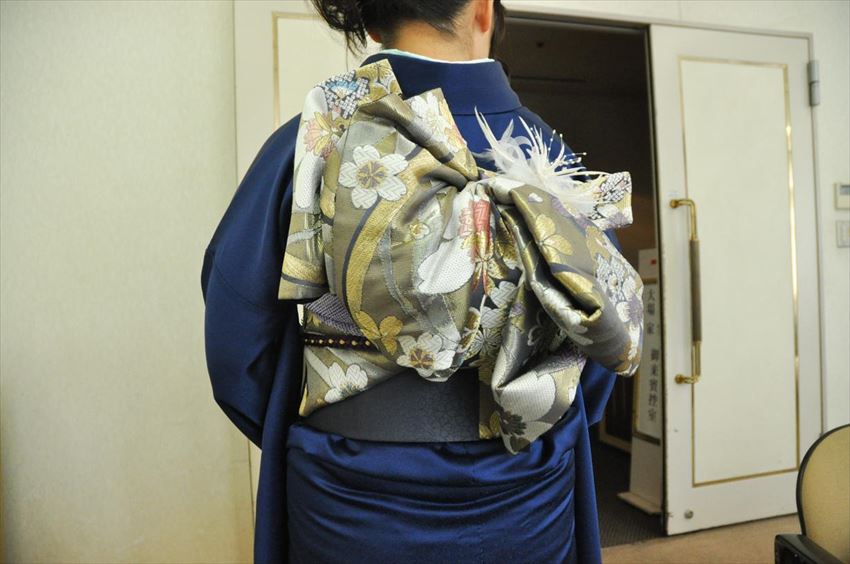
Different type of Kimono
There are several types of kimono for different occasions. Here is some types of kimono (not all) and the occasions when you should wear it and not.
Furisode
Furisode is a long sleeved kimono that is only unmarried woman can wear. Mostly it is with gorgeous design and young girls wear for their coming-age ceremony. Traditionally they would cut the long sleeves off after they get married and wear is as Tomesode (short-sleeved kimono).
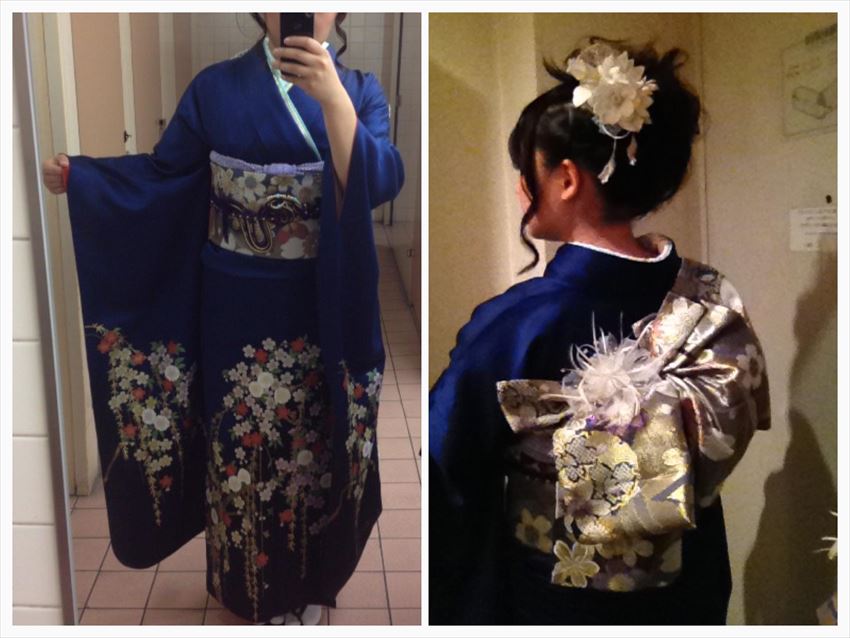
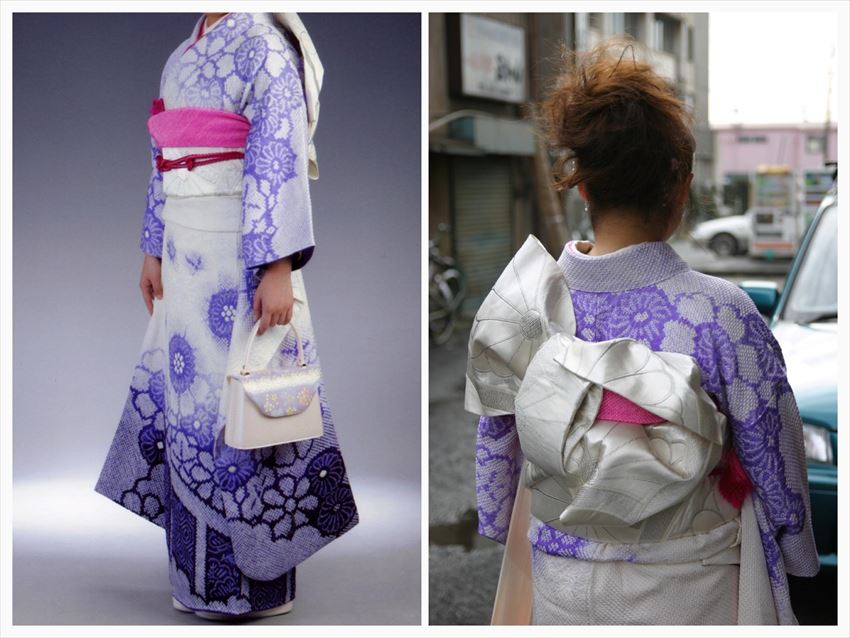
These pictures are when I wore my furisode at my coming-age ceremony and friend’s weggin. Most of the time wearng furisode, make the Obi (Kimono belt) gorgeous.
Homongi/Tsukesage
Homongi/Tsukesage is fomal/semi-formal kimono that you can wear at a ceremony like weddings. “Homon” means “visiting” so mostly people wear homongi when they attend ceremony or event as a guest. While Homongi often cost a lot because of its production process, tsukesage cost less using simple production. Homongi and tsukesake can be worn by both married and unmarried woman.
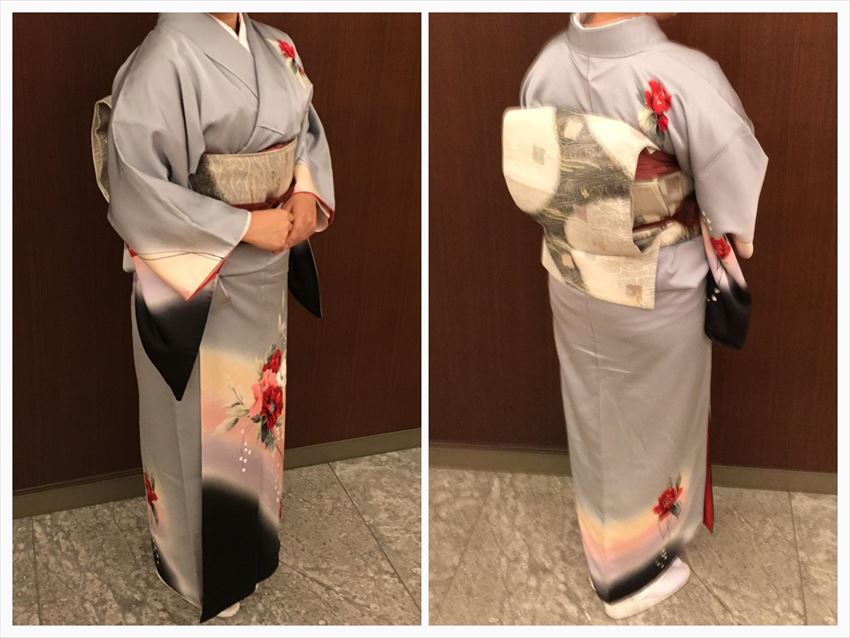
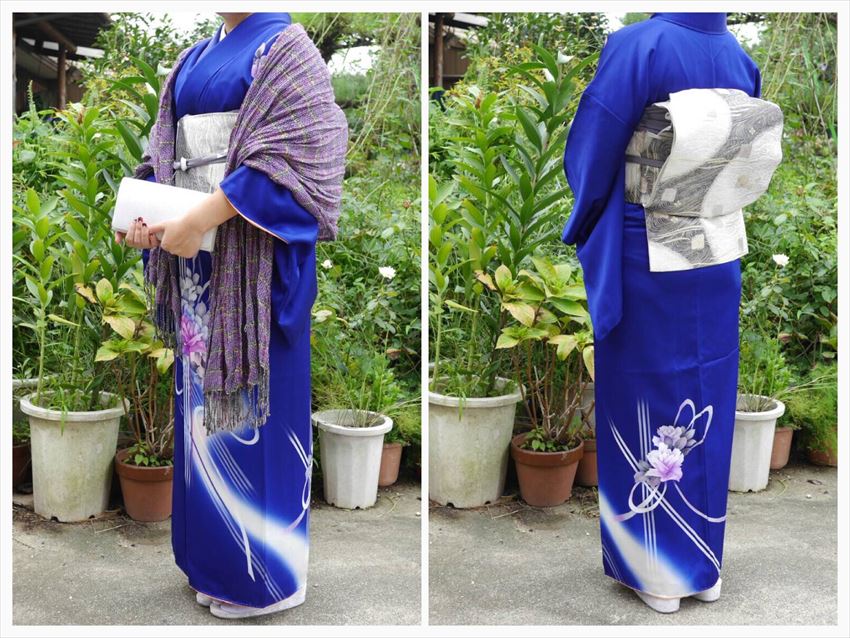
These are Homongi and Tsukesage. Young women can make the obi more gorgeous but mature ladies tend to make obi more simple – this obi called Otaiko (meaning “drum” in Japanese).
Komon
Komon has the same patterns repeated and is more casual comparing to Homongi. You wear komon for daily going-out like shopping or lunch with friends. You cannot wear is for weddings or other formal occasion.
Yukata
Most casual kimono as I mentioned before. It can be worn only in summer.
How to Wear Yukata
1. Wear underwear for kimono - Hadajuban
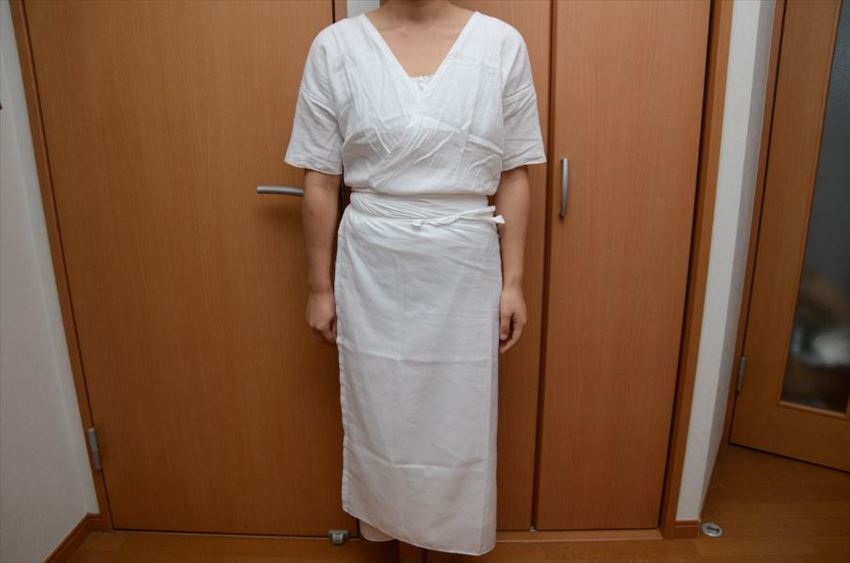
2. Wear Kimono
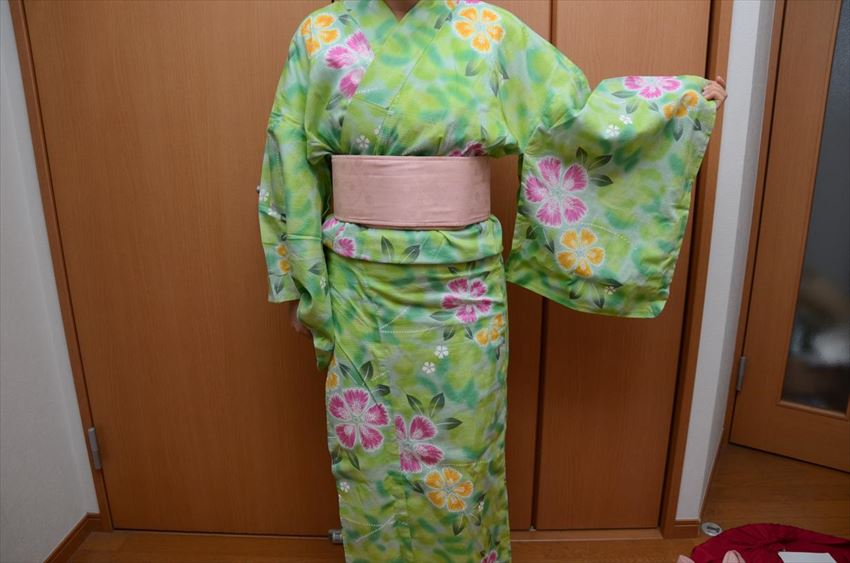
3. Wrap the obi and make a ribbon in front of your body (when you wear yourself).
For Yukata, you use Hanhaba Obi (Half Width Obi – about 15cm width)
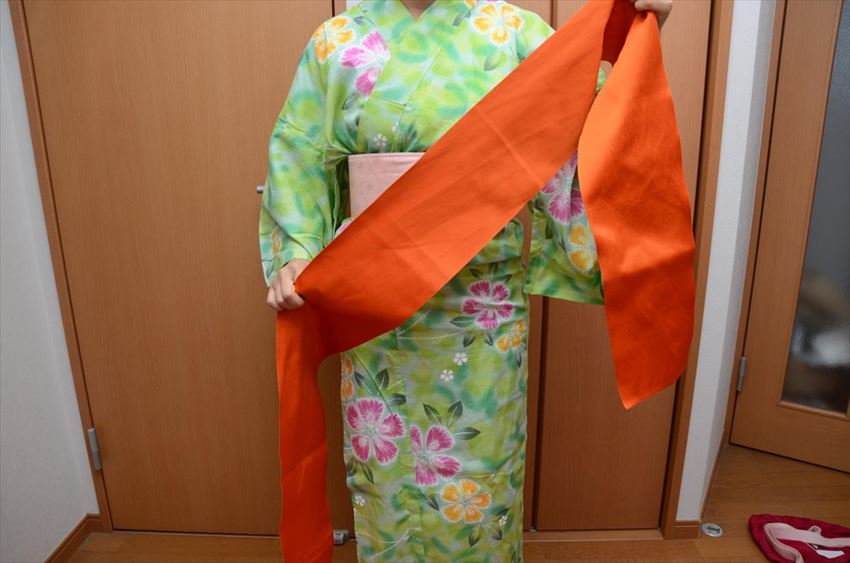
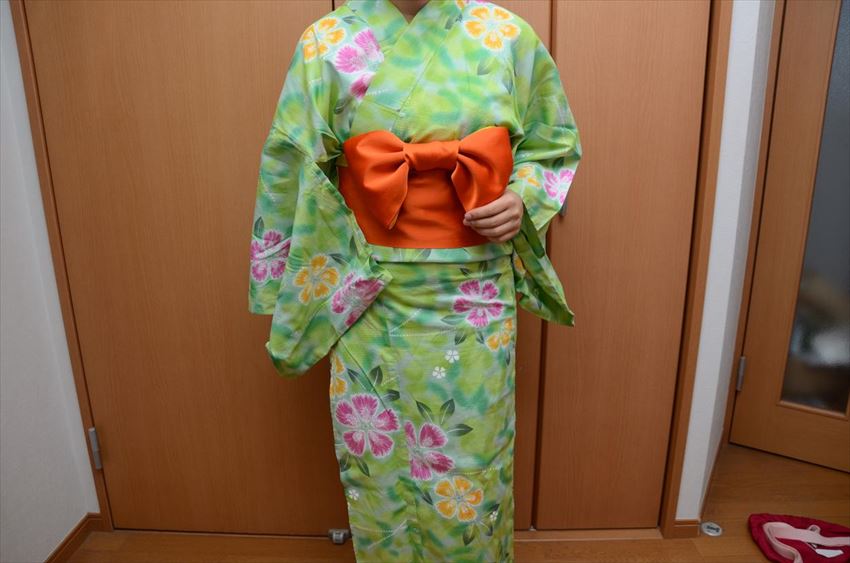
4. Flip the Obi to move the ribbon to the back
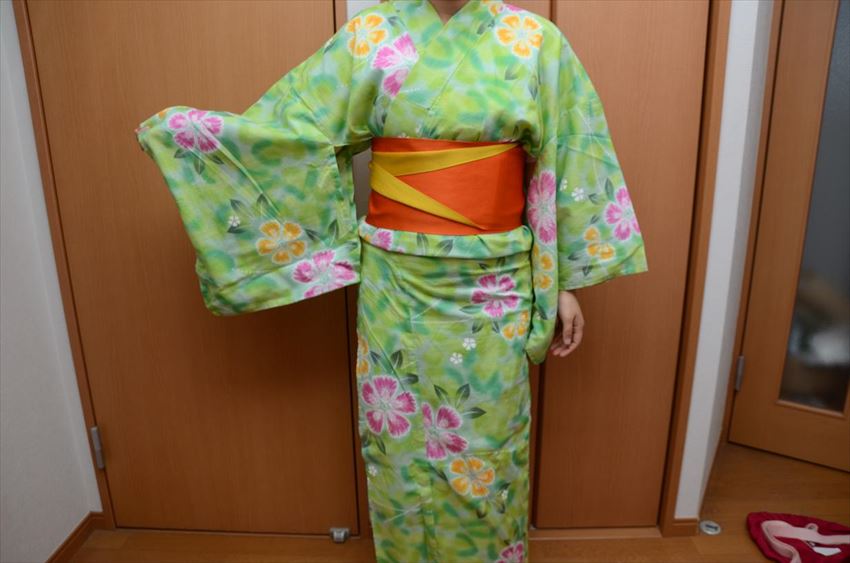
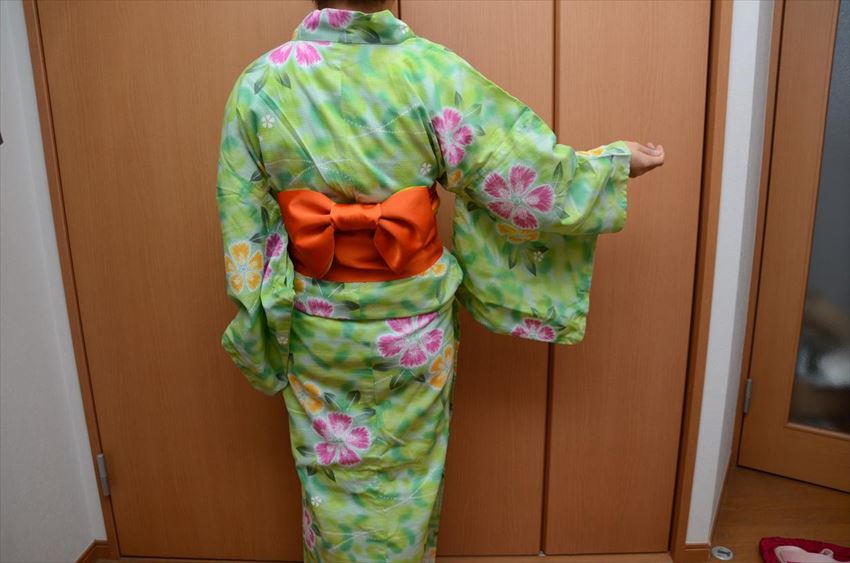
You might yukata at Ryokan (Japanese Inn) or onsen. Those yukatas are easier to wear. When you wear a yukata, just make sure the left side of the yukata is wrapped over the right side. If you do the other way, that means you are dead so it is taboo. The taboo is the same when you wear any kind of kimono.
How to wear Kimono
1. Wear underwear for kimono – Hadajuban (same as yukata)

2. Wear another underwear – Nagajuban
The reason why we wear this is because most kimono made of silk and not to damage the kimono with sweat.
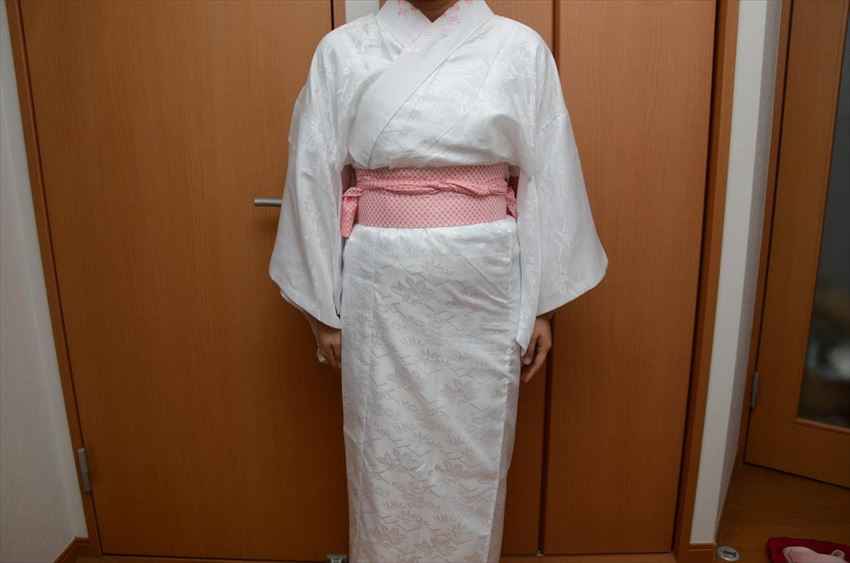
3. Wear Kimono over nagajuban
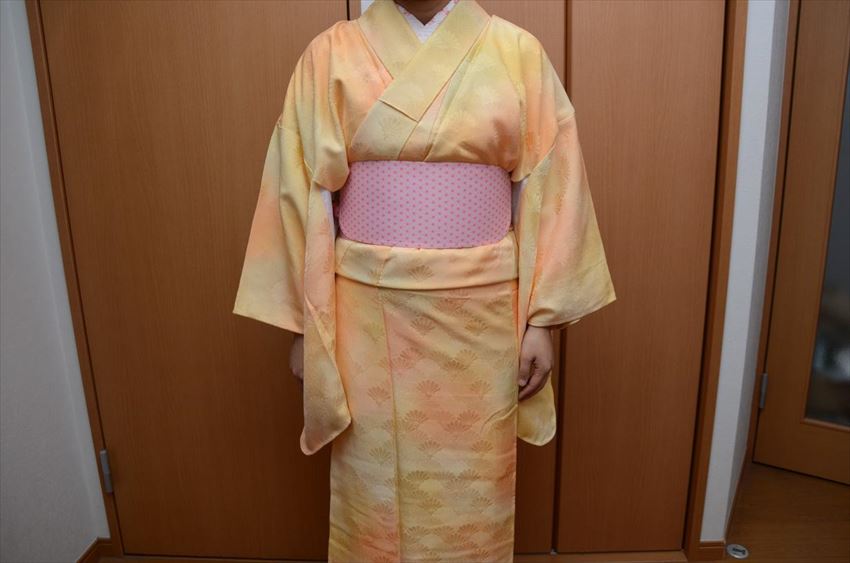
4. Wrap the Obi and make an Otaiko
Usually for kimono, we use Nagoya Obi or Fukuro obi that is width about 36 cm and use it holding in half. You can also use Hanhaba obi for a casual occasion.
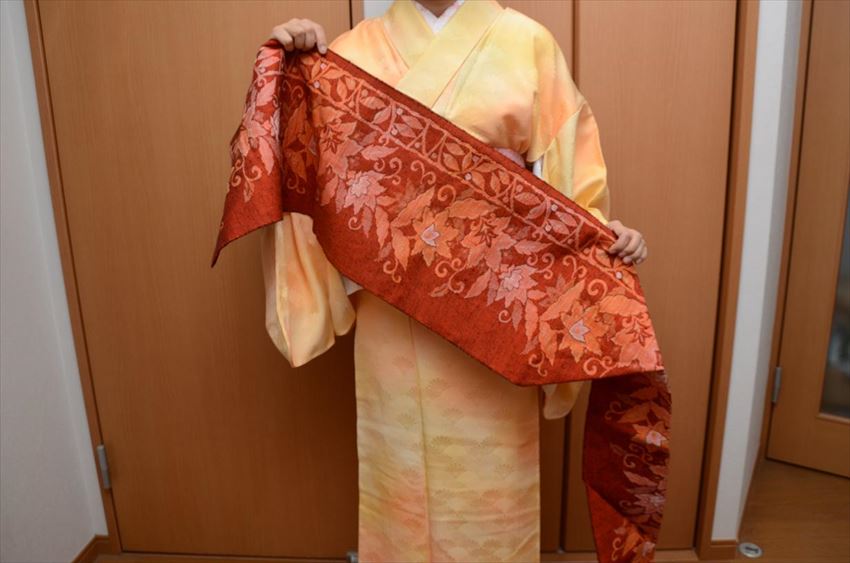
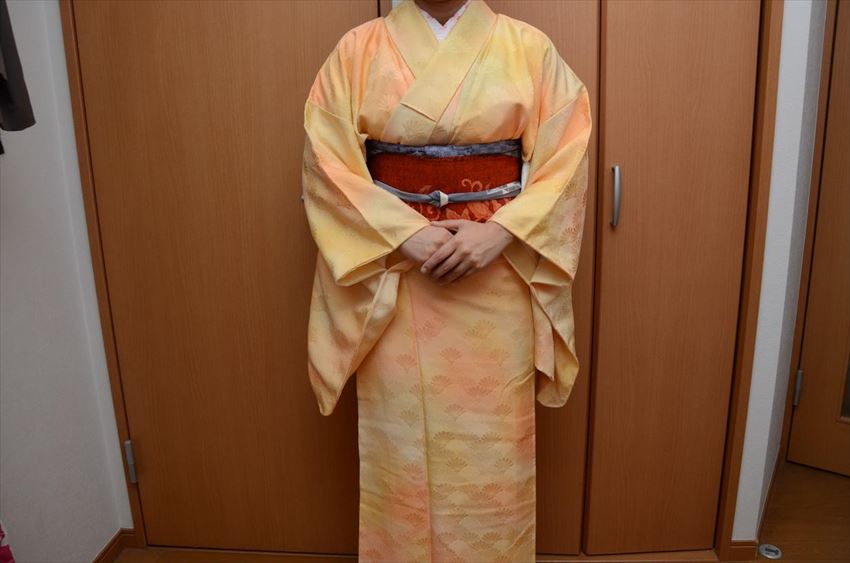
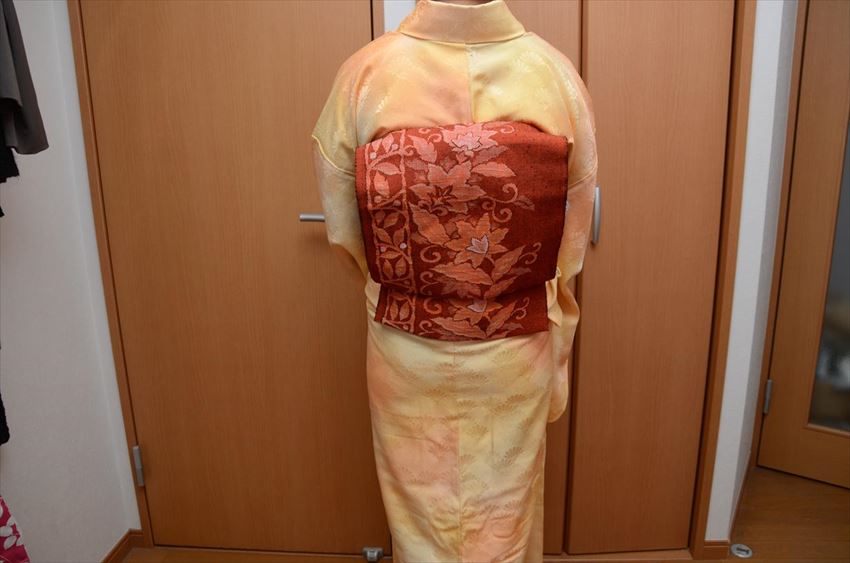
There are many sightseeing spot like Asakusa or Kyoto where provide you a chance to try wearing kimono. At first you wear kimono, you might think it is hard to walk or move, but that makes your move look elegant. I am sure walking around the historical spots wearing a kimono would be a wonderful experience and great memory.
Comments